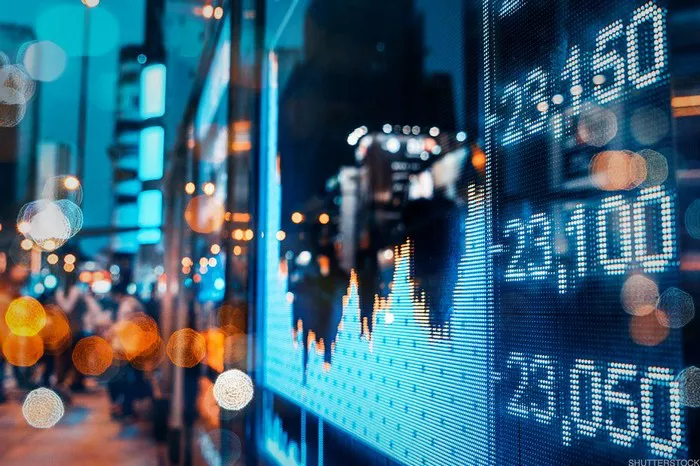Cryptocurrency futures have become a prominent feature of the digital asset landscape, offering investors and traders an avenue for speculation and hedging within the crypto market. As cryptocurrencies continue to gain mainstream acceptance and adoption, understanding how futures contracts work in this space is crucial for anyone looking to engage in crypto trading. This guide aims to provide a comprehensive overview of what crypto futures are, how they function, and their significance within the broader cryptocurrency ecosystem.
What are Crypto Futures?
Crypto futures are financial derivatives contracts that allow traders to speculate on the future price movements of cryptocurrencies. These contracts obligate the buyer to purchase, and the seller to sell, a specific cryptocurrency at a predetermined price on a specified future date. Unlike spot trading, where assets are bought and sold for immediate delivery, futures contracts enable traders to capitalize on price movements without actually owning the underlying asset.
How Do Crypto Futures Work?
Crypto futures operate similarly to traditional futures contracts in other asset classes. A futures contract typically includes details such as the contract size, expiration date, and the agreed-upon price, known as the futures price. The futures price is determined based on market expectations of the cryptocurrency’s value at the contract’s expiration date.
Traders can take two main positions in a futures contract: long and short.
1. Long Position: A trader enters a long position by agreeing to buy the cryptocurrency at the futures price. If the price of the cryptocurrency rises above the futures price by the contract’s expiration, the trader profits.
2. Short Position: Conversely, a trader enters a short position by agreeing to sell the cryptocurrency at the futures price. If the price falls below the futures price by the contract’s expiration, the trader profits.
Significance of Crypto Futures
Crypto futures serve several key purposes within the cryptocurrency ecosystem:
1. Price Discovery: Futures markets provide valuable information about market sentiment and expectations regarding future cryptocurrency prices. The interaction between supply and demand in these markets helps determine the fair value of cryptocurrencies.
2. Risk Management: Traders and investors use futures contracts to hedge against adverse price movements in the cryptocurrency market. By taking offsetting positions in futures contracts, they can mitigate potential losses resulting from price volatility.
3. Liquidity Provision: Futures markets enhance liquidity by enabling traders to enter and exit positions more easily. This increased liquidity can lead to tighter bid-ask spreads and reduced slippage, benefiting all market participants.
4. Arbitrage Opportunities: Arbitrageurs exploit price differentials between futures and spot markets to profit from market inefficiencies. Their activities help align prices across different trading venues and contribute to market efficiency.
Risks Associated with Crypto Futures
While crypto futures offer opportunities for profit and risk management, they also entail certain risks:
1. Price Volatility: The cryptocurrency market is highly volatile, with prices subject to rapid and unpredictable fluctuations. Futures traders may incur substantial losses if they fail to accurately anticipate price movements.
2. Leverage Risk: Many futures contracts allow traders to amplify their exposure to the underlying asset through leverage. While leverage can amplify profits, it also magnifies losses, increasing the risk of significant financial loss.
3. Counterparty Risk: Futures contracts are typically traded on centralized exchanges, exposing traders to counterparty risk—the risk that the exchange may default on its obligations. Traders should conduct due diligence to assess the reliability and security of the exchange before trading futures contracts.
4. Regulatory Risk: The regulatory environment surrounding cryptocurrencies and futures trading remains uncertain and subject to change. Regulatory developments, such as new legislation or enforcement actions, could impact the legality and operation of crypto futures markets.
Conclusion
Crypto futures play a vital role in the cryptocurrency ecosystem, offering traders and investors a mechanism for speculation, risk management, and price discovery. By understanding how futures contracts work and the associated risks, participants can make informed decisions and navigate the dynamic landscape of crypto trading more effectively.
In conclusion, the evolution of crypto futures reflects the maturation of the cryptocurrency market and its integration into the broader financial system. As this market continues to develop, crypto futures are likely to play an increasingly significant role in shaping price dynamics and market structure within the digital asset space.
FAQs
Q1. How can I start trading crypto futures?
A1: To start trading crypto futures, you’ll need to open an account with a reputable cryptocurrency exchange that offers futures trading services. After completing the registration and verification process, you can deposit funds into your account and begin trading futures contracts based on your trading strategy and risk tolerance.
Q2. What factors should I consider when trading crypto futures?
A2: When trading crypto futures, it’s essential to consider factors such as market volatility, liquidity, leverage, and regulatory developments. Conducting thorough research and staying informed about market trends and news can help you make more informed trading decisions and manage risk effectively.
Q3. Are crypto futures suitable for beginners?
A3: While crypto futures offer opportunities for profit, they also entail significant risks, including price volatility and leverage risk. Beginners should exercise caution and consider gaining experience with spot trading or less risky investment strategies before venturing into futures trading. It’s crucial to educate yourself about the complexities of futures markets and develop a solid understanding of trading principles before engaging in futures trading activities.


